Alphabet sequencing Letter Recognition Worksheets for Ages 3-4
6 filtered results
-
From - To
Explore our engaging Alphabet Sequencing Letter Recognition Worksheets designed for children aged 3-4! These interactive and fun worksheets help young learners recognize and order letters of the alphabet while enhancing their cognitive and fine motor skills. Each activity encourages kids to identify, trace, and sequence letters, making learning enjoyable and effective. Perfect for early childhood education at home or in the classroom, our resources aim to nurture a strong foundational understanding of letters. Download now to inspire your child’s literacy journey and boost their confidence in mastering the alphabet! Ideal for parents and educators aiming to foster early learning.
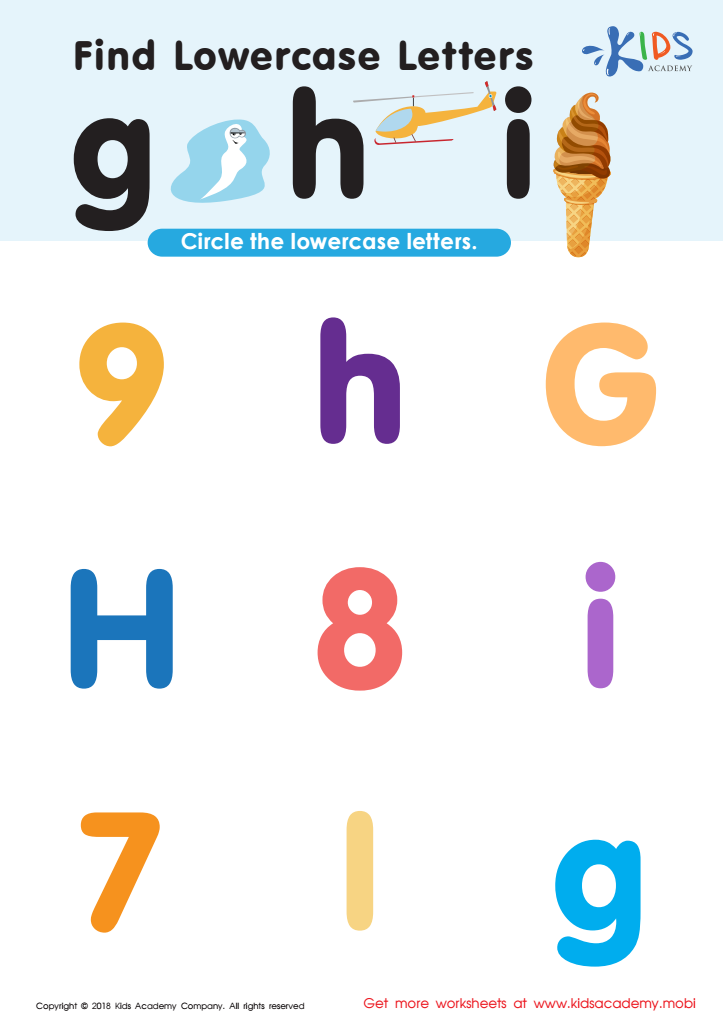

Find Lowercase Letters g h i Worksheet
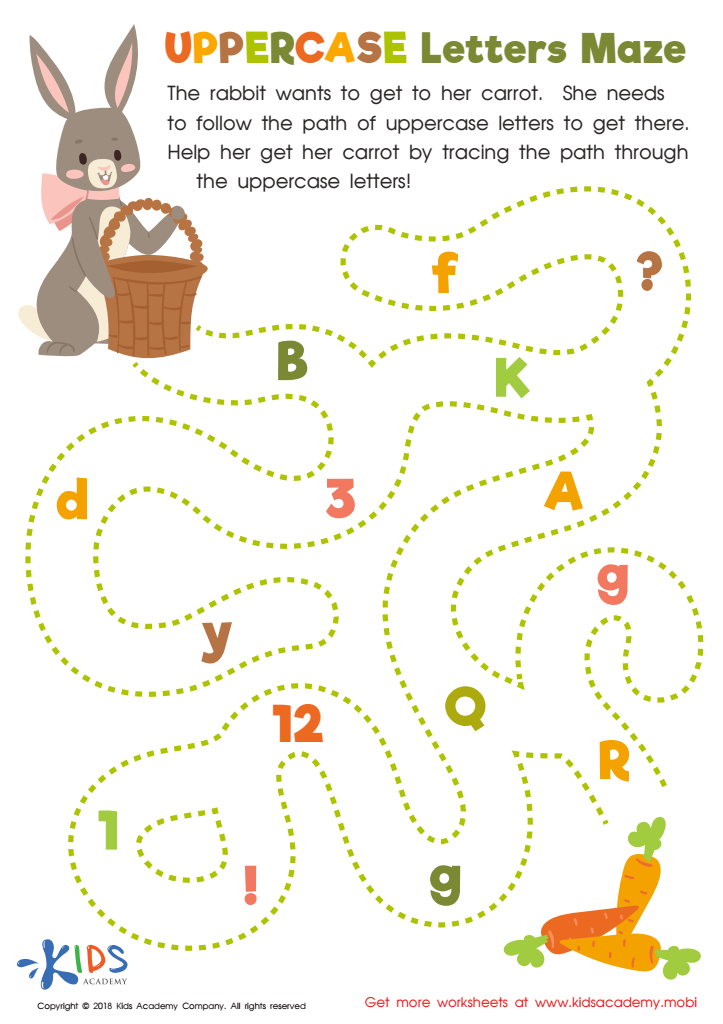

Uppercase Letters Maze Worksheet
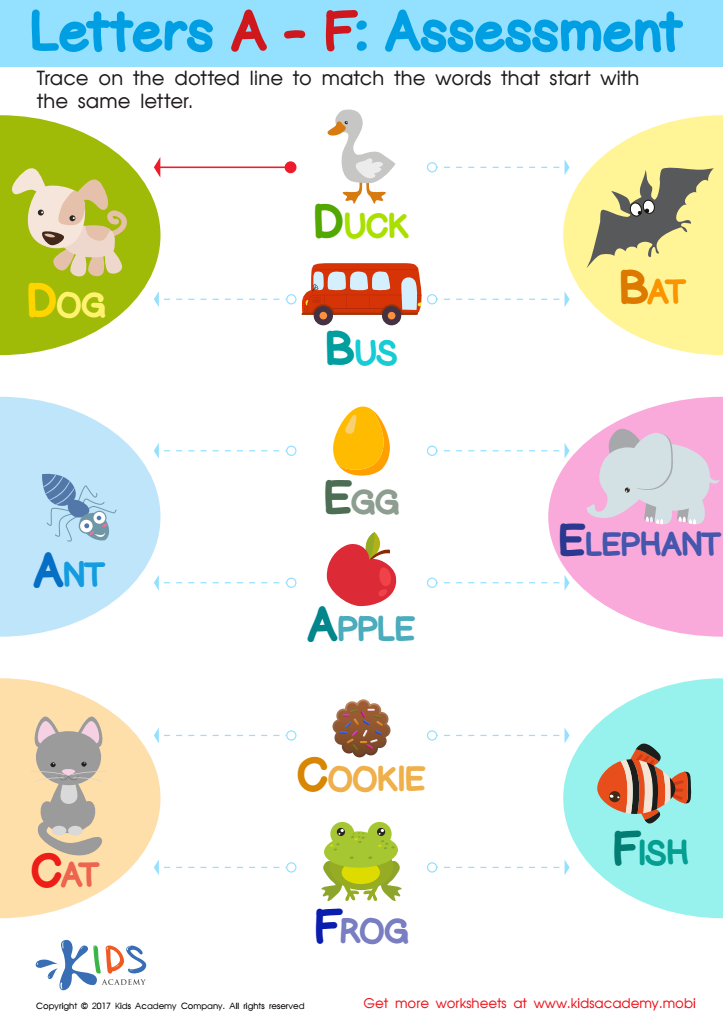

Letters A - F Worksheet
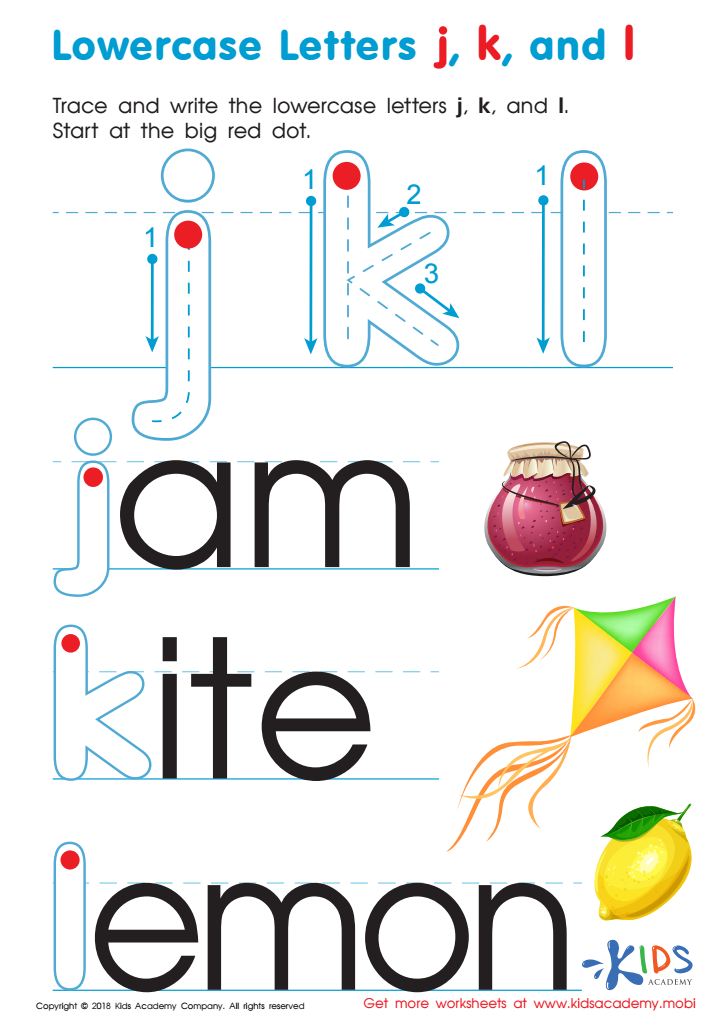

Lowercase Letters j k l Worksheet
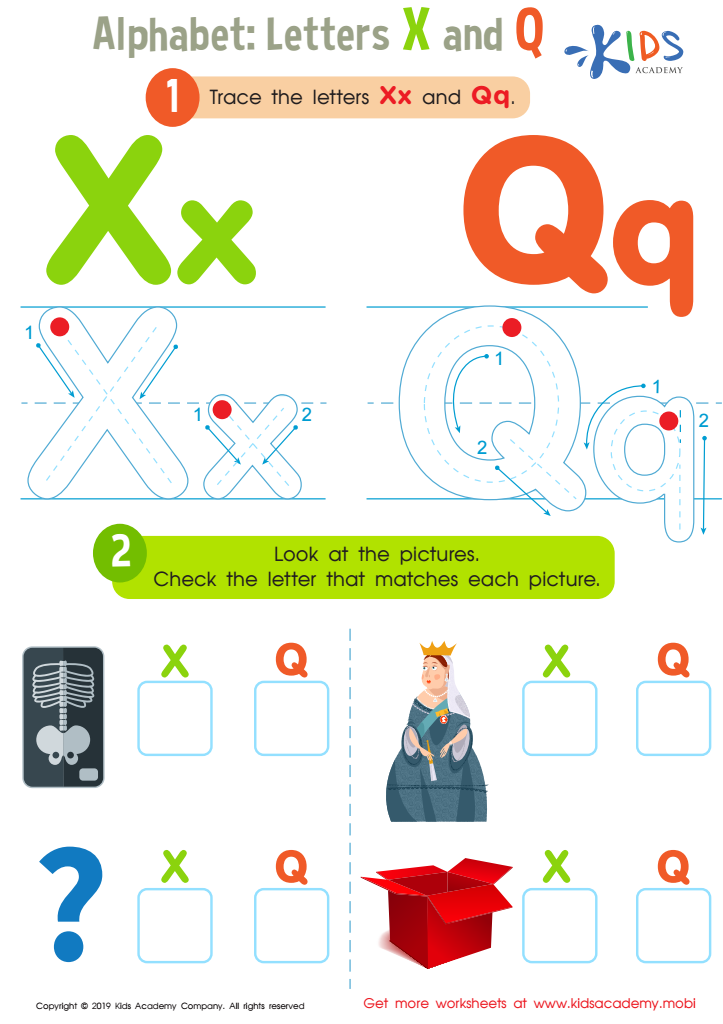

Letters X and Q Tracing Worksheet
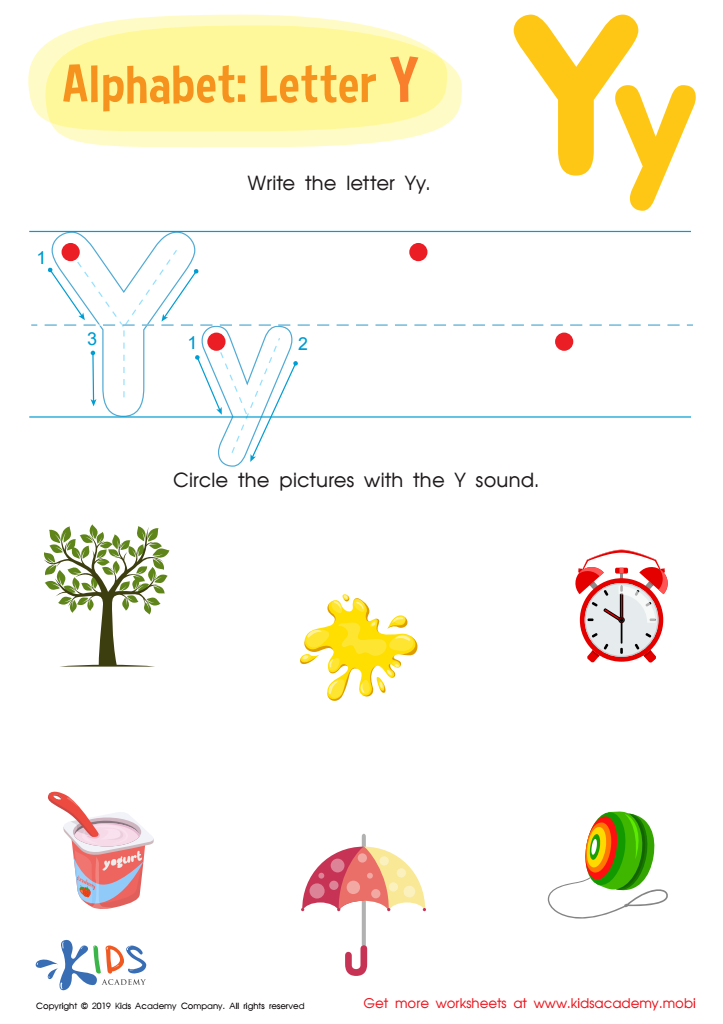

Letter Y Tracing Worksheet
Alphabet sequencing and letter recognition are critical foundational skills for children aged 3-4, as they form the basis for literacy and future academic success. Parents and teachers should prioritize these skills for several reasons.
Firstly, mastering alphabet sequencing helps children understand the order of letters, which is essential for reading and spelling. Recognizing letters in sequence fosters the ability to decode words, aiding in early reading development.
Secondly, at this age, children's brains are highly receptive to learning. Engaging them with phonics, songs, and games centered around letter recognition harnesses this capacity, making learning enjoyable and effective.
Moreover, letter recognition fosters cognitive development, improving memory and attention skills as children recall the names and sounds of letters. It also lays the groundwork for writing, enabling children to form letters cohesively.
Additionally, literacy skills have been linked to overall academic achievement; thus, early familiarity with the alphabet can lead to higher success in school. Parents and teachers who actively promote letter recognition not only prepare children for reading but also instill a love for learning. Fostering these skills is essential, as they contribute significantly to a child's confidence and competence as they embark on their educational journey.
 Assign to My Students
Assign to My Students




















